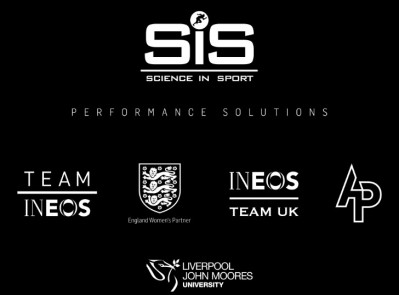Personalised Nutrition innovation further shifts emphasis on self-care and prevention

In a review paper, Mariette Abrahams explains why patient‐centred care is moving towards individual-based guidance that focuses on treating the patient rather than the disease.
“Numerous apps, programs, platforms and plans are now aimed at delivering a personalised experience for the user based on profiling of an individual’s demographics, genotype, nutritional intake and status, anthropometrics, lifestyle behaviours, and/or preferences,” says Abrahams, a nutrition business consultant.
“In the future, we expect to see even more research investment in Personalised ‘algorithm‐based’ approaches.
“For example, clinical trials are currently underway aiming to validate a microbiome‐based personalisation approach for blood sugar management,” she adds.
The nutrition industry has played a major part in the development of PN, particularly in the kinds of innovation aimed at improving consumer health and wellbeing as well as more advanced approaches for professional athletes.
Nutrition data firm Medtronic acquired Nutrino Health in a deal that built on an existing collaboration in which both firms co-developed apps designed to monitor glucose levels according to the patient’s reaction to certain foods.
Start-up tech
Start-ups have been particularly active in this area with an app by 8fit, a Berlin-based company, which focused on PN and work out plans received €8.4m in funding its Series A round.
Israeli-based firm Yissum now makes available technology designed to print 3D food according to pre-defined criteria potentially serving a variety of markets and populations, including sports athletes and the elderly.
UBS recently said the benefits food, medical diagnosis, technology and food delivery services could gain was enough to propel the PN industry to €58bn by 2040.
The investment bank’s commentary identified Nestlé’s investment in the personalised space, as “a major growth opportunity” as it revealed plans back in January to buy personalised medicine outfit LivingMatrix.
Box 1. Guiding principles for personalised nutrition.
- Define potential users and beneficiaries
- Use validated diagnostic methods and measures
- Maintain data quality and relevance
- Derive data‐driven recommendations from validated models and algorithms
- Design personalised nutrition studies around validated individual health or function needs and outcomes
- Provide rigorous scientific evidence for an effect on health or function
- Deliver user‐friendly tools
- For healthy individuals, align with population‐based recommendations
- Communicate transparently about potential effects
- Protect individual data privacy and act responsibly
The deal, made by the Swiss corporation’s Atrium Innovation, adds LivingMatrix’s data and algorithm-minded platform to create personalised care plans, will inevitably add a nutrition component as suggested by recent deals with the Center for Microbiome Innovation (CMI), and Persona.
Along with Nate Matusheski, DSM’s global science lead for PN & dietary supplements, the review paper also cites scientific evidence pointing to the growing value of PN.
In the clinical setting, there is increased recognition of the importance of implementing nutritional screening and intervention.
In a broader wellness context, several important gene–diet interactions were found to influence the response to dietary weight‐loss interventions in the DIOGENES trial.
However, as the authors point out, for many commercial platforms, their benefit has yet to be established in randomised controlled trials.
“Challenges still exist in terms of replicability of results, diversity of population groups included, as well as scientific validation and accuracy of products currently available,” the review highlights.
Commercial PN programs
The paper goes on to comment on the rising number of commercial PN programs that have arisen, pointing out the variety in how they collect the necessary information about an individual.
The authors cite a set of ten guiding principles (See Box 1) for assessing whether a given PN platform can offer real benefits, or whether some alternative should be recommended.
“New personalised nutrition technologies that are based on science, and are inclusive and accessible, provide new ways of delivering care and reaching key groups to support them in lasting behaviour change,” the paper concludes.
“To become the reference professionals for a data‐driven future that is already here, we need to address where we are as a profession in terms of our inclusive leadership and ensure that our digital and entrepreneurial literacy skills are truly at the forefront of change.”
Source: Journal of Human Nutrition and Dietetics
Published online ahead of print: doi.org/10.1111/jhn.12746
“Personalised nutrition technologies: a new paradigm for dietetic practice and training in a digital transformation era.”
Authors: M. Abrahams, N. Matusheski et al.








